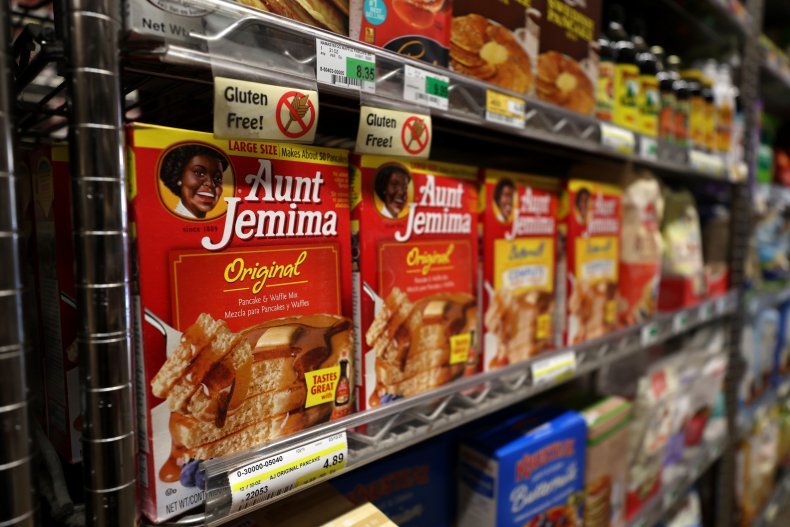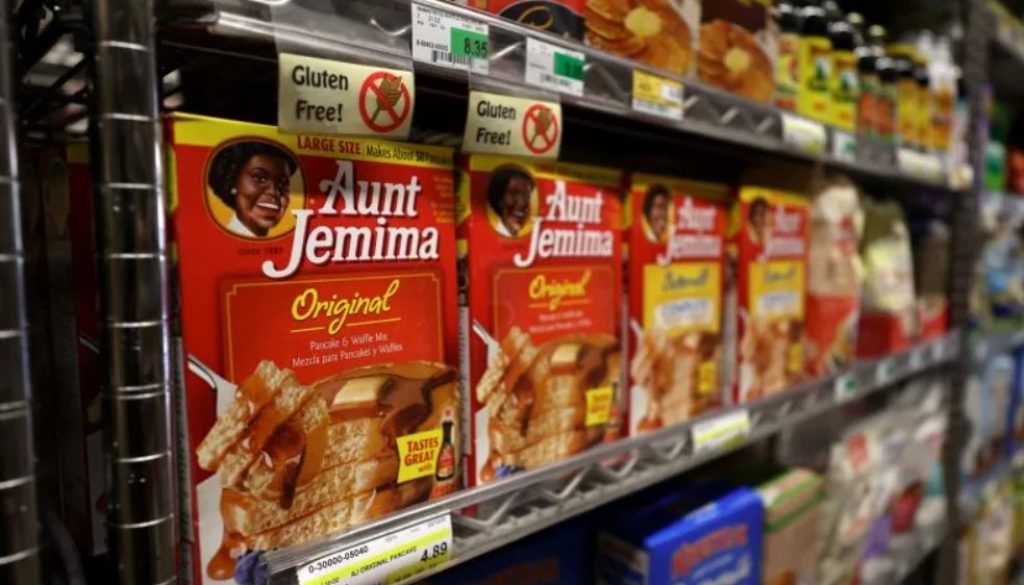Great-Grandson Of Aunt Jemima Portrayer Angry Over Planned Rebranding
The great-grandson of the most recent woman to appear on boxes and bottles of Aunt Jemima products is angry that Quaker Oats will rebrand later this year.
Larnell Evans Sr. told Chicago Patch that his great-grandmother Anna Short Harrington began appearing on the pancake mix and syrup bottles for the Aunt Jemima brand in 1935 after she was discovered by Quaker Oats, the company which owns Aunt Jemima. Harrington, Evans said, toured the country as the brand’s representative, and served pancakes as part of those duties for two decades.
“She worked for that Quaker Oats for 20 years. She traveled all the way around the United States and Canada making pancakes as Aunt Jemima for them,” the 66-year-old Marine Corps vet told Patch Chicago. “This woman served all those people, and it was after slavery. She worked as Aunt Jemima. That was her job. … How do you think I feel as a Black man sitting here telling you about my family history they’re trying to erase?”
Evans added that removing Harrington from the products is “an injustice for me and my family. This is part of my history.”
Quaker Oats made the announcement about the branding change on Wednesday, prompting similar announcements from Mrs. Butterworth, Uncle Ben’s and Cream Of Wheat. Those brands also announced plans to change their packaging and, in some cases, brand names, due to their racially insensitive stereotypes. On Saturday, Eskimo Pie also said it will rebrand, due to stereotypes the name evokes of the Inuit people.
For Aunt Jemima, the brand’s image references a ‘mammy’ character who served white people. The brand’s name references a song, “Old Aunt Jemima” often performed in minstrel shows by a white person in blackface.

Harrington did not originate the Aunt Jemima character. Nancy Green was the first woman to portray the character in the 1890s, according to The Museum of Public Relations and the Aunt Jemima website’s history of the product. However, The Museum of PR and the Chicago Tribune name Anna Robinson as the woman whose likeness Aunt Jemima was based on.
“The racism they talk about, using images from slavery, that comes from the other side—white people. This company profits off images of our slavery. And their answer is to erase my great-grandmother’s history. A Black female. … It hurts,” he said.
Evans and his nephew attempted to sue the company in 2014 over royalties they felt the family were owed as he said Quaker Oats is using Harrington’s pancake recipe. They asked for $3 billion in restitution, though the lawsuit was dismissed in federal court since the two men weren’t executors of Harrington’s estate, Syracuse.com reported.
“How many white people were raised looking at characters like Aunt Jemima at breakfast every morning? How many white corporations made all them profits, and didn’t give us a dime? I think they should have to look at it. They can’t just wipe it out while we still suffer,” he said. “After making all that money—and now’s the time when black people are saying we want restitution for slave—they’re just going to erase history like it didn’t happen?”
Newsweek reached out to Quaker Oats and its parent company PepsiCo for comment via email and received automated replies. Quaker Oats stated that the inbox was monitored Monday to Friday during normal business hours. Newsweek reached out to a man who appears to be the Larnell Evans interviewed by Patch directly via social media, but did not receive a response in time for publication.




